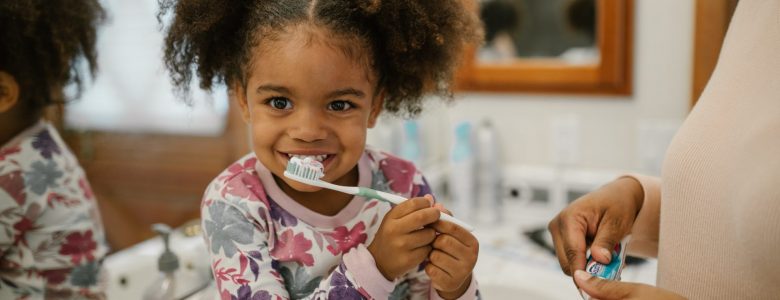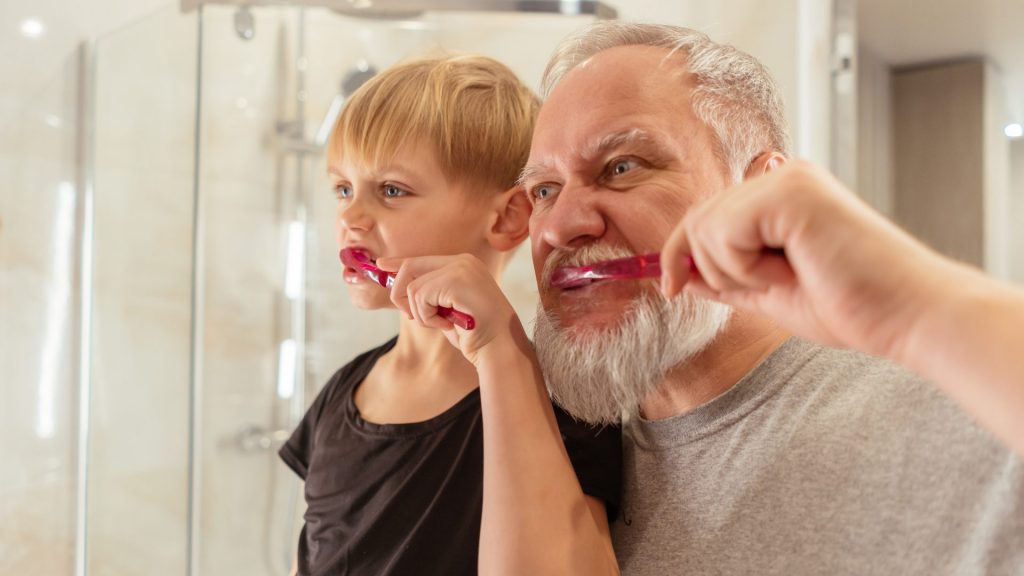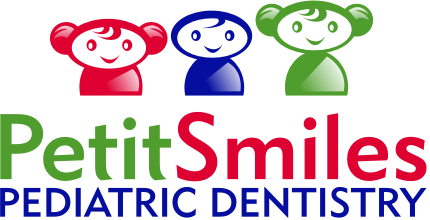
When Should a Child be Allowed to Brush Alone?
Introduction
As children grow and embark on the journey of self-discovery, fostering their independence becomes a crucial aspect of parenting and caregiving. Here at Petit Smiles, we believe that one of the earliest opportunities for children to develop autonomy is through learning to brush their teeth independently. However, this milestone poses questions for parents about when and how to allow their child to take on this responsibility. Balancing the need for independence with ensuring proper oral hygiene practices can be challenging. In this comprehensive article, we will explore the factors that contribute to a child’s readiness to brush their teeth alone and provide practical guidance for making this significant decision. Remember to follow us on Instagram to know more about dental practices for healthy, strong teeth and gums.
Motor Skills and Coordination
The development of fine motor skills and coordination is paramount for a child to handle toothbrushing effectively. Toothbrushing requires precise movements to clean all surfaces of the teeth and gums thoroughly. While there is no fixed age for children to master these skills, most children begin to demonstrate the necessary dexterity between the ages of 6 and 8 years.
As a parent or caregiver, observe your child’s progress in other activities that demand fine motor skills, such as tying shoelaces, using utensils, or writing. If they exhibit control and precision in these tasks, it may indicate that they are ready to handle toothbrushing independently.
Understanding Oral Health
To ensure a child’s readiness for independent toothbrushing, they must grasp the importance of oral hygiene and how to brush effectively. Parents play a vital role in teaching proper brushing techniques, emphasizing the significance of regular brushing in preventing cavities and maintaining healthy gums.
Engaging in interactive sessions, such as brushing together and explaining each step, can be highly beneficial. Utilize age-appropriate educational resources like books, videos, or mobile apps to make the learning process enjoyable and informative.
Ability to Follow Instructions
The ability to follow instructions is a crucial aspect of brushing independence. Children should comprehend and remember the steps involved in brushing and apply them consistently. This includes brushing for the appropriate duration (at least two minutes), reaching all areas of the mouth, and rinsing correctly.
Initially, supervise their brushing routines and provide gentle reminders when necessary. Gradually reduce direct involvement as they demonstrate improved adherence to the instructions.

Assessing Toothpaste Use
Toothpaste usage requires special consideration when deciding on independent brushing. Young children may struggle with determining the appropriate amount of toothpaste to use and may inadvertently swallow excessive amounts, which can be harmful.
As a general guideline, children under the age of 3 should use only a smear of toothpaste, while children aged 3 to 6 can use a pea-sized amount. Ensure they spit out the toothpaste and rinse thoroughly after brushing.
Consistency in Dental Checkups
Regardless of whether a child brushes alone or with assistance, regular dental checkups are essential. Our Pediatric Dentists can monitor the child’s oral health, offer guidance on proper brushing techniques, and detect any issues early on. We have two Dental Offices that you can contact us for personalized attention.
| Factors to Consider | Description | Assessment Tips | Recommended Age Range |
|---|---|---|---|
| Motor Skills and Coordination | Assess the child’s ability to maneuver the toothbrush effectively around all surfaces of the teeth and gums. | Observe fine motor skills in other tasks like tying shoelaces or using utensils. | 6 to 8 years |
| Understanding Oral Health | Determine if the child understands the importance of oral hygiene and knows how to brush properly. | Engage in interactive brushing sessions and educational resources. | 4 to 6 years |
| Ability to Follow Instructions | Observe whether the child can follow the steps involved in brushing consistently and thoroughly. | Supervise brushing routines and offer gentle reminders as needed. | 4 to 6 years |
| Assessing Toothpaste Use | Ensure the child can use an appropriate amount of toothpaste and spit it out without swallowing. | Monitor toothpaste usage and provide guidance on the proper amount. | 3 to 6 years |
| Consistency in Dental Checkups | Regular dental checkups are crucial for monitoring oral health and getting professional guidance. | Schedule regular dental visits and discuss oral care with the dentist. | From the first tooth eruption |
Please note that the recommended age ranges are approximate and can vary depending on the child’s individual development. It’s essential to consider each child’s unique abilities and maturity level when deciding if they are ready to brush their teeth alone. Additionally, ongoing parental supervision and support are vital in fostering good oral hygiene habits throughout a child’s early years.
Conclusion
Allowing a child to brush their teeth alone is an essential step in their path towards independence. However, parents and caregivers must consider various factors to ensure their child is ready for this responsibility. By evaluating their motor skills, understanding of oral health, ability to follow instructions, and toothpaste usage, caregivers can make informed decisions. Remember, fostering independence in oral hygiene is a gradual process, and continued guidance and supervision are essential until the child demonstrates consistent and effective brushing habits. With proper support and encouragement, children will develop the skills and confidence needed to embrace independence in oral care.
At Petit Smiles, we strive to provide the best dental care for infants, children, and adolescents in the Coral Gables and Doral area in Florida. Please feel free to contact us if you have any questions about your teen’s dental health.


